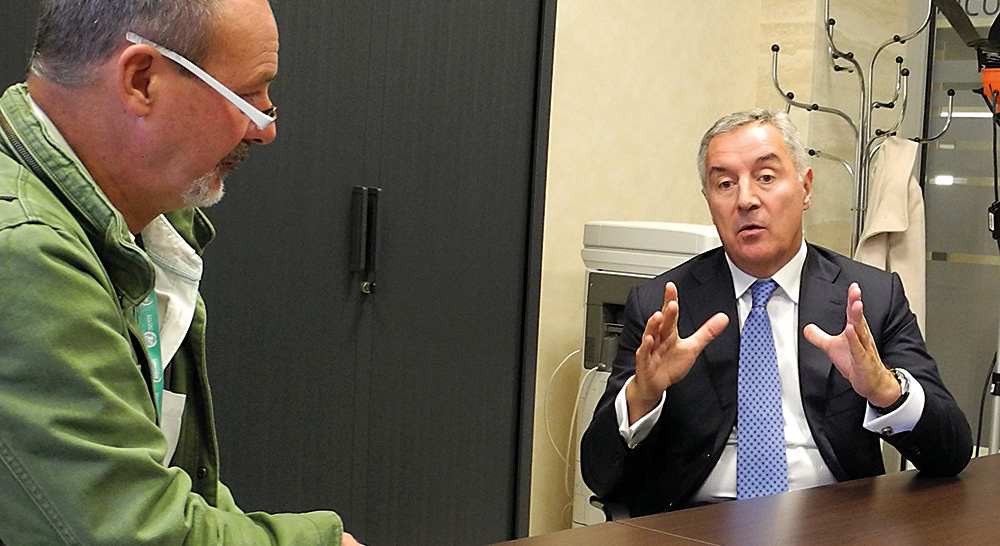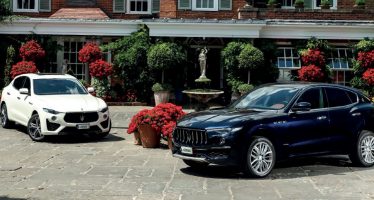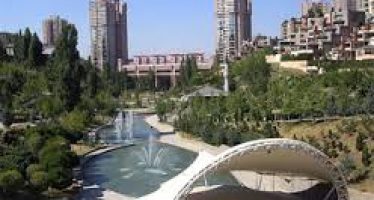President of Montenegro Milo Đukanović: Visions of Europe by Its Best Pupil
Last September, the European Union launched its own Belt and Road Initiative, connecting Europe with Asia.

President Milo Đukanović (right)
The announcement of Brussels’ tentative response to Beijing’s grand strategy was barely noticed as Brexit negotiations neared their climax and Italy decided to throw budgetary caution to the wind. Yet the plan could benefit countries struggling to find merit in a juggernaut promising a shortcut to riches – but delivering a debt mountain instead.
The Chinese-built “motorway to nowhere” in Montenegro is a case in point. Traversing some of Europe’s roughest topographical features with a string of tunnels and sleek bridges, the first 41 kilometres of the road to connect the Adriatic port of Bar to landlocked Serbia, 165km distant, has added some €800m to Montenegro’s debt – which has ballooned to almost 80% of GDP.
In its 2018-19 Transition Report, the European Bank for Reconstruction and Development (EBRD) suggests the government in Podgorica reduce public debt and maintain its fiscal targets.
Montenegro’s plight is a direct result from the European Union’s continued reluctance to actively engage with the Western Balkan, as opposed to China’s eagerness to do so. The Chinese Export-Import Bank provided 85% of the funds needed to complete the first stretch of the Bar-to-Serbia motorway at an attractive 2% interest rate on a loan repayable over 20 years, with a six-year grace period. How could anyone say no? The project is being carried out by Chinese contractor CRBC, which also supplied about two-thirds of the 3,600 workers and nearly all the materials and machines needed for the job.
“Montenegro does not ask for the accession process to be sped-up. We only ask for consistency.”
The Montenegrin motorway makes more political than economic sense. Feasibility studies in 2006 and 2012 concluded that the project lacked viability, requiring a return rate four times higher than the expected 2%. But a study paid for by the Export-Import Bank of China concluded otherwise, convincing the government and parliament to go ahead.
That may have been a wrong decision, although inspired by the country’s ambition to upgrade infrastructure, open up to the wider world, and boost the economy. With the EU conspicuous by its absence, China recognised, and filled, a void.
Brussels Takes Note, At Last
The European Union has swung into action with its own infrastructure development plan for the Balkans and the Caucasus region. The EU strategy calls for comprehensive connectivity, based on premises that projects need to be sustainable and viable. The Connecting Europe With Asia plan is clearly targeted at China’s “build now, worry later” approach.
Montenegro President Milo Đukanović would like to see the EU take a more proactive approach to the region. Though he understands that the EU is suffering the aftereffects of a financial crisis and must consolidate its position, he does not think that the union needs to stop, or even slow, the integration process. “The full unification of Europe will have a good effect on the long-term competitiveness of the continent,” he said. “The next natural step in the enlargement process is the Western Balkans. As the country that has advanced most in the accession procedure, Montenegro aims to be a strong promoter, and a showcase, of European values.”
Đukanović explained to CFI.co that his country had already closed all but two of the 33 chapters of the acquis communautaire, or EU acquis. It expects to open chapter 27, which deals with environmental standards and legislation, within weeks, and chapter eight, on competition, in coming months. The Montenegrin president does not expect any problems.
“This is how things stand from an administrative point of view,” he said. “Essentially, this means that Montenegro has a significant momentum going – not just in the accession process, but also in the comprehensive structural reforms that allow our society to reach EU standards, and become part of the European value system.”
Few prospective member-states have been as eager to join the EU as Montenegro. Đukanović again: “Montenegro is actually trying to reform from the inside and go back to the European civilization circle … It is clear that the dynamics, or pace, of this process do not depend solely on us, but also on the European Union.”
Running Out of Excuses
That is a problem, as Brussels is running out of excuses to keep Montenegro at bay. The country has done everything asked of it, and is on the verge of adopting and implementing the entire EU acquis – the rulebook. There are no reasons to delay, or refuse, Montenegro’s accession.
Đukanović is growing impatient with the EU’s foot-dragging. “The frustration is there because we don’t see the kind of incentive and encouragement coming from the European Union towards us, and the other countries in the region. We are trying to say to the European Union that it is in their interest, as much as it is in ours, to recognise that we are working as fast as possible to meet the goals and join the EU.
“The EU is the engine of Europe, and every engine … takes the responsibility for the entire train, including the caboose. If that caboose is lost or diverted somewhere, it cannot be good for the engine and train…
“Just look back to the 1990s to see a part of our history that was not European. That was the part of history surrendered to xenophobia, national exclusion, war, and ethnic cleansing. All of that happened towards the end of the 20th century in Europe’s diverted caboose.”
Europe had to invest huge amounts of money in the rehabilitation of the region, he says, and EU states had send soldiers on peacekeeping missions. “Why not deal with the causes, instead, and make the Balkan countries part of Europe – not just geographically but also in values?”
Đukanović fears that the EU is slowing the accession of Western Balkan states for all the wrong reason. “Again, we understand and accept that the EU was badly stung before and learned a number of lessons as a result. So, Montenegro does not ask for the accession process to be sped-up. We only ask for consistency.
“Keep the door open and let us reform ourselves and join on the basis of our accomplishments. But whatever you do, please do not give up on the vision of a united Europe. Its architecture may not always be perfect – as was demonstrated by Greece – but that can always be fixed. Such design flaws are no reason to discard the entire project, or freeze it in time.”
You may have an interest in also reading…
CFI.co Meets the Vice President of Global Trust: Andreas Thanos
At a time when Greece was descending into the depths of a financial crisis without equal in the country’s history,
Maserati on Value Creation: Trident Badge and a Heady Rumble Mean Business, On the Road and In the Showroom
How many syllables would you like with your supercar? One? Porsche will do nicely. Two? Bentley, please. Three? Ferrari, of
Turkey’s Public Finances: Time for a Fiscal Policy Pivot?
New World Bank report recommends shift to more sustainable growth model. The World Bank today launched a new report, Turkey in


















































































